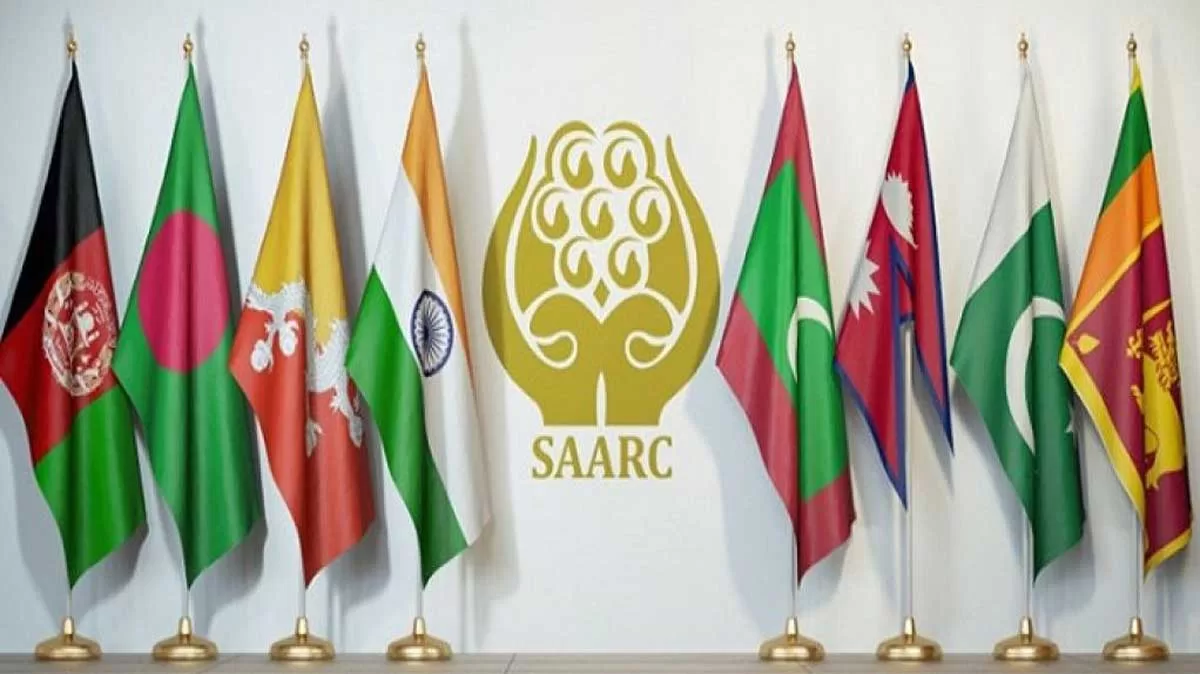At the recent United Nations General Assembly (UNGA), Bangladesh’s Interim Chief Adviser, Dr. Muhammad Yunus, emphasized the need to revive the South Asian Association for Regional Cooperation (SAARC). His message is timely because the region faces possible challenges due to the ongoing issues in the Middle East. Member countries, especially India and Pakistan, should respond to this call by using the upcoming Shanghai Cooperation Organization (SCO) meeting in Islamabad on October 15-16. This could be a key opportunity to restart diplomatic conversations and build trust, helping SAARC get back on track and function effectively.
A prolonged conflict in Israel could seriously impact South Asian countries. Rising oil prices could reach new heights, and any disruption of the Suez Canal could harm the region’s exports since the Middle East is a major trading partner. Additionally, millions of South Asians work in the Middle East, and instability there could threaten their safety and income, reducing remittances sent home. The combination of higher oil prices, lower remittances, and reduced export earnings could put pressure on the financial stability of all SAARC countries.
To effectively tackle the challenges posed by the current geopolitical and economic uncertainties, SAARC must become a stronger, more unified organization. South Asian leaders need to look ahead and take proactive steps to reform SAARC, ensuring it can respond more effectively to both immediate and long-term regional needs. Building a consensus around SAARC’s revival is essential, as it will require collective commitment from all member states. However, for these efforts to succeed, India and Pakistan — the two most powerful and influential members within SAARC — must play leading roles.
While Indian Foreign Minister S. Jaishankar has stated that he would not use the upcoming SCO meeting to address India-Pakistan relations, Pakistan still has an opportunity to steer the discussion towards the broader issue of SAARC’s importance. This approach would allow Pakistan to advocate for SAARC’s revival without delving into contentious bilateral issues. By focusing on shared regional interests, such as economic stability, trade, and security, Pakistan can promote SAARC as a platform for collective action and cooperation that benefits all member states.
This strategy could help depoliticize the conversation and shift attention away from India-Pakistan tensions, highlighting instead how a stronger SAARC could provide tangible advantages for the entire region. Emphasizing these shared goals may encourage India and other member countries to consider the broader benefits of a revitalized SAARC, potentially setting the stage for increased cooperation and resilience across South Asia.
The last SAARC summit took place in Kathmandu in 2014, but the 2016 summit in Islamabad was postponed when India refused to attend due to “prevailing circumstances”. Other members, like Bangladesh, Bhutan, and Afghanistan, also chose not to participate. Nepal has tried to revive SAARC since then, but strained India-Pakistan relations, along with India’s preference for focusing on national rather than regional interests, have held back progress. This has limited SAARC’s ability to promote regional cooperation and resolve conflicts.
Now more than ever, India and Pakistan need to recognize that peace and stability are not one-time achievements but ongoing processes that require sustained commitment and effort. Moving forward means being willing to put aside longstanding bilateral differences, even temporarily, in favor of shared regional goals that promise mutual benefits. By doing this, both countries can contribute to an environment of cooperation that has the potential to uplift all SAARC members, fostering regional prosperity, security, and resilience.
The upcoming SCO meeting presents an ideal opportunity to start this journey. While it may not be the platform for addressing specific India-Pakistan disputes, it does provide a space for India, Pakistan, and other member nations to engage in diplomatic dialogue. Such conversations can help build confidence, restore some level of trust, and establish a foundation for future discussions. By concentrating on common regional interests — such as economic development, trade, and collective security — India and Pakistan can help create a cooperative atmosphere, one that focuses on what unites the region rather than what divides it.
This approach would not only strengthen SAARC but also demonstrate that both countries are capable of leading by example, prioritizing the collective wellbeing of South Asia. By seizing this moment, India and Pakistan can initiate a gradual but meaningful process of engagement that reinforces the idea that a stable and cooperative South Asia is achievable, provided that regional interests are prioritized over individual conflicts.
Dr. Yunus has compared SAARC to the European Union, which has succeeded by working together and moving past historical conflicts. South Asian leaders, particularly from India and Pakistan, have not yet achieved similar cooperation. Although Nawaz Sharif has expressed support for Dr. Yunus’s vision at the UNGA, India’s commitment is still important. With his global influence, Dr. Yunus could help unite SAARC’s member states.
It is important for India and Pakistan to put regional cooperation ahead of bilateral disputes. Using the SCO meeting for diplomatic conversations and confidence-building measures can pave the way for SAARC’s revival. While resolving the India-Pakistan conflict is complex, a cooperative approach could bring peace and stability to the region. Both countries should recognize the advantages of working together for a stronger SAARC.
Let’s hope that better sense prevails between India and Pakistan during the SCO meeting resulting in the revival of SAARC.
